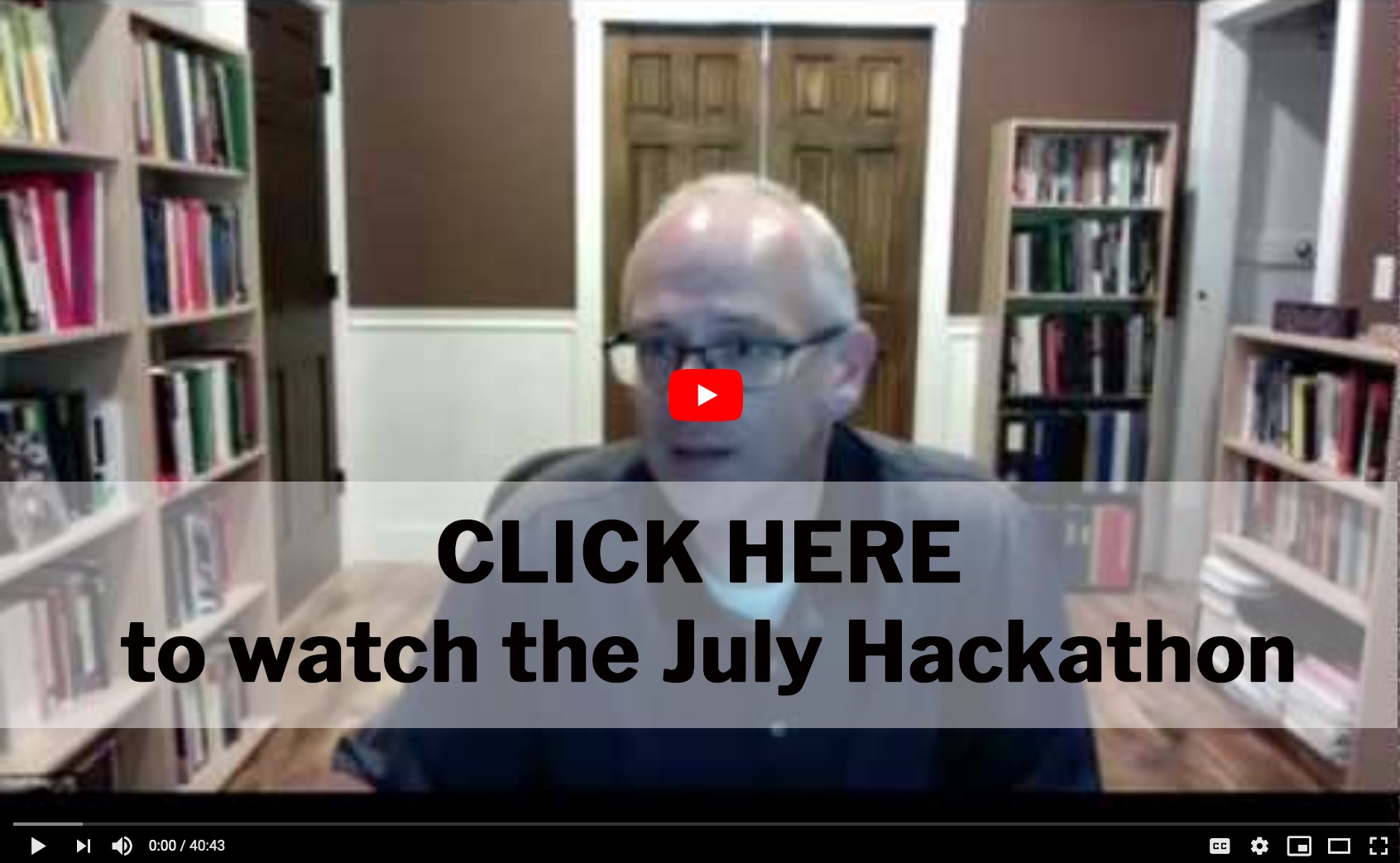By David Wiley, Chief Academic Officer
In July, we conducted our first virtual continuous improvement hackathons in an attempt to bring together several strands of work in a coherent way. (I will describe these strands in detail in an upcoming essay about the theoretical foundations of this work.) Here’s how we structured them and how it worked.
Much of the expertise necessary to pull off the hackathons was brought to bear during our (Lumen’s) preparation for the events:
- Expertise in learning science, instructional design, and pedagogy came together in the design of the current version of the OER-based learning materials.
- Expertise in educational research methods and statistics and data analysis came together in the RISE analyses showing where energy focused on improving OER would have the biggest impact on student learning.
- Expertise in tools and technologies came together to automate RISE analyses across multiple sets of course materials and automatically publish these as publicly available Google Docs.
- Additional expertise in learning science and learning technology came together to help us choose to focus the workshop on creating interactive online practice activities, which research demonstrates are 6x more effective in supporting learning than reading text or watching videos. And our experience in face-to-face workshops has been that, after a very brief training on H5P focused on creating online interactive practice activities (including how to provide distractor-specific feedback and how to apply open licenses), many people are capable of creating an open online interactive practice activity.
We sent messages out across a range of faculty networks inviting participation in the hackathon. Even though it was summer, and invitations went out only about 10 days in advance, we were really pleased with the turnout (63 signed up and 45 attended, with another 43 requesting the recording). As an incentive to participate, the hackathon included free hands-on training in how to use the open source tool H5P to create open, online interactive practice activities. Everyone who participated walked away with new skills and will soon receive a certificate they can use to document their new skills.
The results of the RISE analyses identified over 100 topics (learning outcomes) for which participants could make a real impact on student learning by creating an open online interactive practice activity. We hoped participants would be able to find something to match their subject matter expertise and interests in those 100+ topics, but they weren’t restrained in any way – they were free to create their interactive on whatever topic was interesting and useful to them personally.
After the webinar-style training on H5P and an even briefer introduction to the results of the RISE analyses, we turned people loose to create interactives. During the morning hackathon session, I stayed online in the webinar system for the next ~2 hours to answer questions and provide support if people got stuck. (I started my career as a webmaster and instructional technologist back in the early-mid 90s, and getting to provide this kind of support in a workshop format always takes me back to those happy times…) Our Director of Learning Engineering, Dr. Ross Strader, stayed online to provide this kind of support for people who attended the afternoon hackathon session.
As people finished their interactives, they listed them in a public Google Doc. We checked these as they came in, providing real-time feedback to attendees (e.g., “you forgot to include feedback on this answer option” or “you forgot to add the open license”). 22 people created open, online interactive practice as part of the workshop!
Beyond the Hackathon: Curate, Refine, Remix
Now comes the complicated task of digging through these open, online interactive practice activities, confirming which OER they can be remixed with, vetting them for editorial or subject matter accuracy issues, and doing the work of integrating them in with existing OER in a manner that feels coherent. For those interactives that make it through this process to be included in Lumen-curated OER course materials, we’ll both attribute the creators (of course) and later provide them with a letter they can include in their tenure and promotion materials describing the reach and impact their contribution has made.
It’s super exciting to join with a broader community of educators using data, subject matter expertise, creativity, and learning technology to make OER course materials better at supporting learning!
Where Next?
All told, I think this first pair of hackathons worked pretty well. 71% of the people who registered to attend actually showed up, and half of these attendees succeeded in creating an open, online interactive practice activity. The primary hypothesis we were testing with these first hackathons was our belief that there is interest and appetite to get involved in this type of work. We’re delighted with participation in this first “beta” version of a virtual OER hackathon, and we’re eager to learn more about how make the hackathon experience effective and worthwhile for many more educators in the future. And while it seems obvious in retrospect (as so many things do), another key lesson we learned is that morning is a far better time for this kind of virtual workshop than late afternoon. Attendance was lower in the afternoon, energy felt lower, and the temptation to just be done for the day seemed pretty powerful.
Starting in September, we’ll begin hosting some variation on this virtual continuous improvement hackathon monthly. I’m excited to continue to learn our way forward into this new and important territory.
–> Sign-up HERE for our continuous improvement mailing list to ensure you are kept up-to-date on hackathons and other continuous improvement news and events.
Do you have ideas about how we can improve this process? Thoughts about how can we make it easier for people to engage in continuous improvement of OER? Or would you like us to come to your campus to do a continuous improvement workshop face-to-face with your faculty? Send me a note at david@lumenlearning.com.


